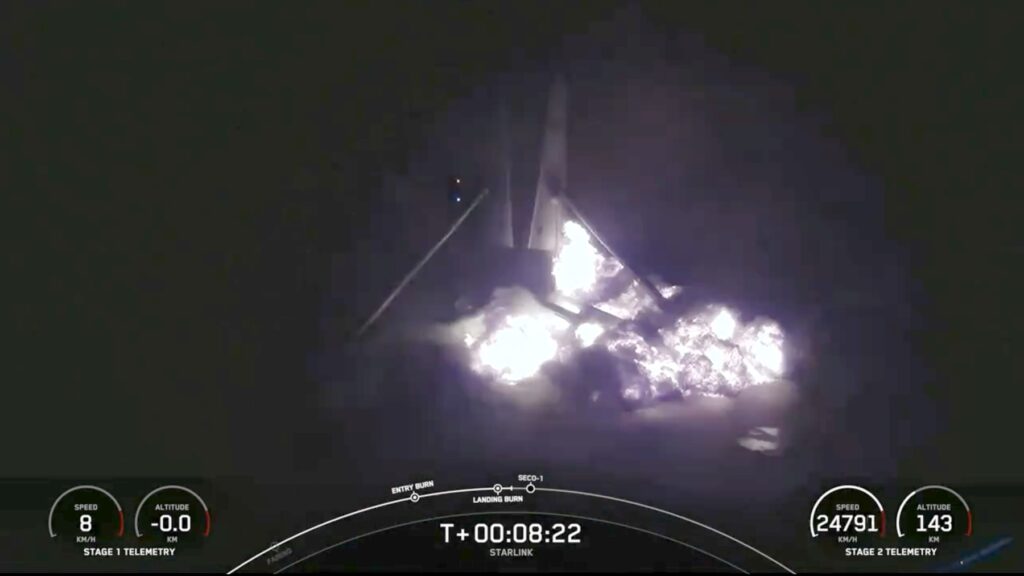WASHINGTON — Falcon 9 launches have been temporarily put on hold while the Federal Aviation Administration investigates the public safety impacts of a failed booster landing early Monday morning.
In a statement on August 28, the FAA said it was aware of an incident that occurred earlier that morning when a Falcon 9 booster landed on a drone ship during a successful launch of 21 Starlink satellites. Upon landing, flames erupted from the base of the booster, and the craft rolled over a few seconds later.
No one was injured or damaged in the incident beyond the loss of the booster, but the FAA said in a statement that an investigation was needed, which will prevent SpaceX from conducting any further launches for the time being.
“The return to flight of the Falcon 9 booster rocket is contingent on the FAA determining that the systems, processes, and procedures associated with the anomaly do not affect public safety,” the FAA said. “Furthermore, SpaceX may need to apply for and receive approval from the FAA for license modifications incorporating the corrective measures and to satisfy all other license requirements.”
But the investigation doesn’t have to be completed for SpaceX to resume launches. The FAA says on its website that if the incident “does not involve safety-critical systems and does not pose a threat to public safety,” launch vehicle operators can ask the FAA for a “public safety determination.” If the FAA makes that determination, launches can continue while the investigation continues.
SpaceX has not released any further details about the incident, but a company official said the company does not believe what happened to the booster during landing was a public safety issue.
“We are committed to thoroughly determining the root cause and implementing corrective actions as soon as possible,” John Edwards, SpaceX’s vice president of Falcon rockets, wrote on social media. “One thing we know for sure is that this is purely a recovery issue and does not pose a threat to our primary mission or public safety.”
One industry source said privately that the time it takes for the FAA to review the safety issues and allow launches to resume will depend on what caused the booster loss. A landing gear failure, for example, would likely be resolved quickly because it wasn’t used during other phases of flight, but an engine failure of some kind could require additional investigation.
The FAA similarly halted Falcon 9 launches after an upper stage engine failed during a Starlink launch on July 11. SpaceX received approval from the FAA to resume launches two weeks later, citing public safety reasons.
But the FAA’s announcement means all future Falcon 9 launches will be postponed, including the private astronaut Polaris Dawn mission, which SpaceX postponed just hours before its Starlink launch due to forecasted bad weather at the splashdown site off the coast of Florida. SpaceX said at the time that it wouldn’t pursue an early morning launch opportunity on Aug. 28 or 29 and hasn’t provided an update since.
“Our launch criteria are heavily constrained by the predicted weather conditions at splashdown,” says Jared Isaacman, Polaris Dawn’s billionaire commander. Posts Shortly after SpaceX announced the launch postponement: “With no rendezvous with the ISS and limited life support consumables, we absolutely must verify the re-entry weather conditions before launch.”
“At this point we’re just focused on recovery weather,” he said. said “We still consider this our gateway to launch,” he said after the FAA’s investigation into the booster landing anomaly was released.



